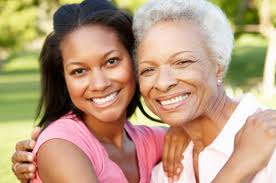 In my first of this two part series, I talked about how Thanksgiving as well as the holidays that follow can be opportunities to give a helpful wellness check on an older loved one’s home. A lot of my suggestions were focused on preventing falls around the home for an older loved one who may not be as nimble as they once were, and home may actually be less safe with the natural wear and tear in an aging household.
In my first of this two part series, I talked about how Thanksgiving as well as the holidays that follow can be opportunities to give a helpful wellness check on an older loved one’s home. A lot of my suggestions were focused on preventing falls around the home for an older loved one who may not be as nimble as they once were, and home may actually be less safe with the natural wear and tear in an aging household.
But there are other health risks for aging adults in America, with dementia, depression and dietary insufficiency forming the three D’s for caregivers. Starting with dementia, less than 1 percent of adults between 60 and 64 years of age suffer from some sort of dementia. But by the time adults reach age ages 80 to 84, that prevalence is about 12 percent, and it doubles once they exceed 90 years of age. Depression is one of the most common conditions of aging adults with estimates of about one in five adults over age 65 suffering at some point with clinical depression. Diet can be even higher than this with one group of researchers pegging the prevalence of malnutrition among older adults at nearly 23% across 12 developed countries. So, if you are a caregiver visiting an older loved one during the holidays, look for the following signs:
- Dementia…
- Without being prying, check your loved one’s refrigerator; look for how well-stocked it may be as well as signs of decay or mold
- Take note of their overall hygiene; are they bathing with enough frequency or laundering their clothes regularly.
- If your loved one owns a pet, how well groomed and fed is the pet; note also, however, that your loved one may be taking better care of Fido than themselves.
- Depression…
- This one also encourages a trip to the frig to see if the low supply may indicate a loss of appetite; in fact a lot of what may appear as dementia in the list above actually may be masking a depression.
- Talk to them about their sleep patterns; inability to sleep through the night or difficulty falling asleep may be signs.
- Get a sense of how active your older loved one is; are they staying active socially, are they still involved in clubs or hobbies?
- Diet…
- The refrigerator should be a stop on this check-up as well; an older adult may not admit they cannot afford all that they should eat – but an under-stocked refrigerator may be a tell.
- Share more than one meal with your loved one; sometimes malnutrition can be attributed to lack of appetite (refer to signs of depression here as well as medications that may be suppressing appetite or causing nausea)
- Note any more pronounced weight loss; clothes that appear to be looser particularly around the collar or waist band.
- Be alert to bruises or wounds that are not healing well or problems with teeth; regarding teeth, be sensitive to particularly bad breath that may be a clue to poor diet or tooth and gum decay.
Charlotte Bishop is a Geriatric Care Manager and founder of Creative Care Management, certified professionals who are geriatric advocates, resources, counselors and friends to older adults and their families in metropolitan Chicago. Please email your questions to info@creativecaremanagement.com.



